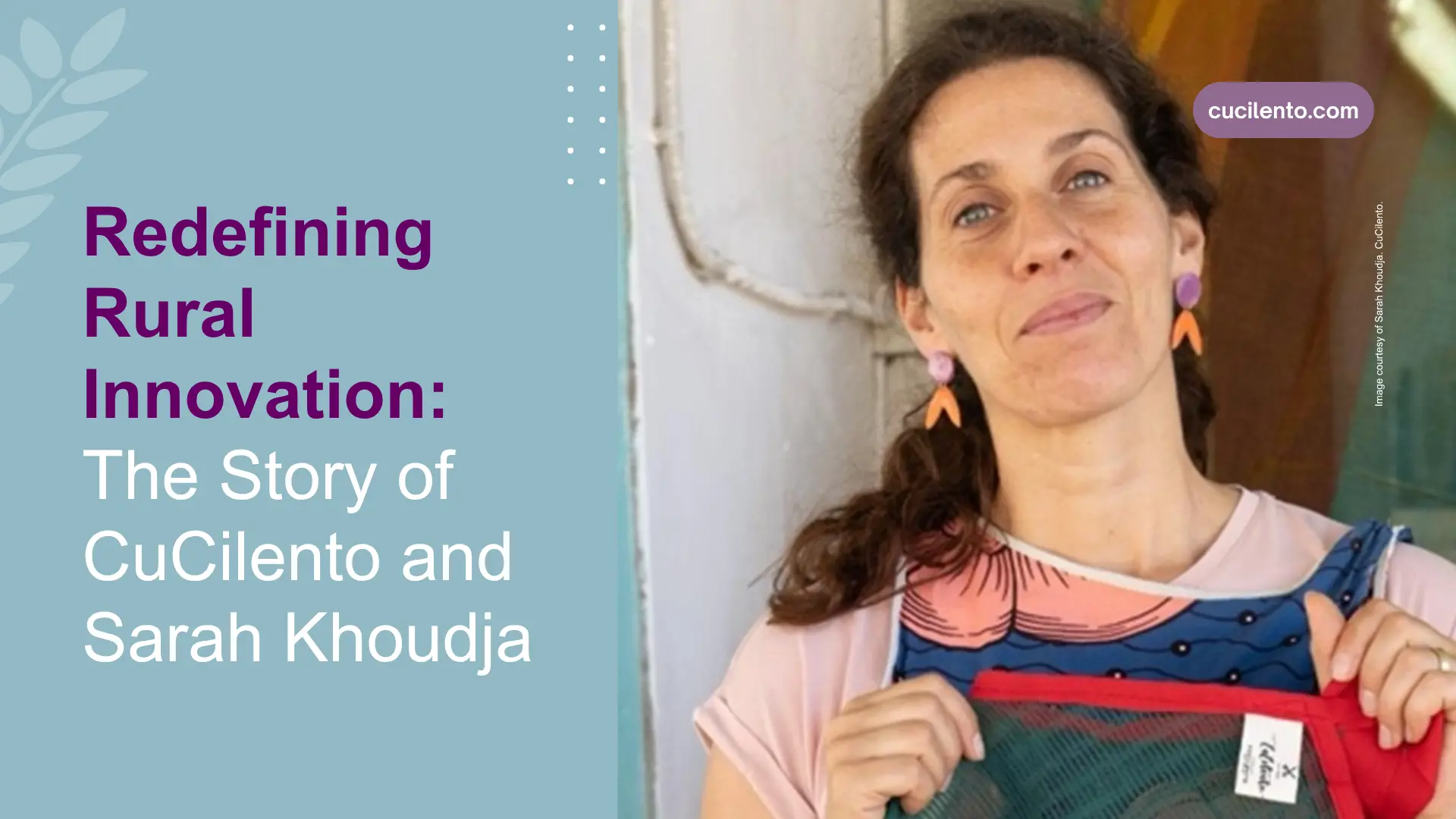In the sun-soaked hills of southern Italy, among olive groves and the scent of the sea, French-born innovator Sarah Khoudja has built a quiet revolution. Four years ago, after leaving behind a demanding career in Brussels as a project manager, Sarah chose a slower, more purposeful life. The result was CuCilento, a workshop where discarded agricultural and maritime materials are given a second life—an initiative that is as much about environmental sustainability as it is about women’s empowerment.
Founded in August 2022, CuCilento collects olive harvest nets, boat sails, coffee sacks, and agricultural big bags, transforming them into durable shopping bags, fashionable accessories, and zero-waste lifestyle solutions. But Sarah insists the story isn’t only about objects. “The innovation,” she explains, “is to create something new from something old. It’s about protecting the environment, but also about creating social impact in a region where many women still lack opportunities to work.”
Indeed, the impact is tangible. CuCilento has partnered with three retailers, enabling them to achieve economic independence. In an area where, as Sarah notes, “one woman out of two doesn’t work—not because she chooses not to, but because she cannot”—this change is monumental.
Yet the journey hasn’t been simple. Financing the project from her own savings was a gamble. Navigating Italy’s complex legal and administrative system proved another uphill battle. And then there was the delicate balance: growing the business enough to thrive, but not so much that it consumes the very rural peace she sought. “I didn’t leave Brussels to become a corporate businesswoman again,” she says with a smile. “I wanted a human-scale project that lets me enjoy the countryside, the landscape, and the sea.”
Support, however, has come from many directions. Sarah works alongside her husband, who runs his own business, and relies on the dedication of local women tailors. She describes CuCilento as “a team effort”—a collaboration that empowers women by entrusting them with responsibilities they had never held before.
Her involvement in the FLIARA project has opened her perspective further. “Daily life as an entrepreneur in rural Italy can be overwhelming,” Sarah admits. “FLIARA gave me the chance to step back, to realise that I am not alone, and that together we can think about structural changes—not just survival.” She envisions a future where innovation is not labelled as “women-led” but instead value-led, with opportunities based on impact rather than gender.
Looking ahead, Sarah dreams of expanding CuCilento’s reach: organising workshops, collaborating with design and tailoring schools to introduce younger generations to upcycling and slow fashion, and connecting with similar initiatives abroad. “Imagine every rural area using its own discarded materials to create what their community needs,” she reflects. “That’s where I want to go.”
Her advice for aspiring innovators is clear and heartfelt:
“Believe in yourself. Trust yourself. Don’t let others tell you what you should do—you know what’s best for you.”
In a world often obsessed with rapid growth and flashy innovation, Sarah Khoudja’s CuCilento reminds us that true innovation can be simple, circular, and deeply human—turning forgotten waste into beauty and untapped potential into independence.



